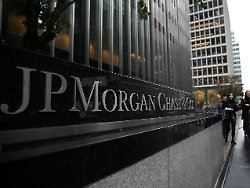The corona pandemic has a firm grip on the US economy. Because of mass unemployment caused by the crisis, more and more Americans cannot repay their loans, and companies go bankrupt. The banks feel that too. Bond trading gives hope, however.
The corona pandemic hits the US with full force: With the daily records of the number of new infections, the hope of a quick economic recovery has been dashed, and at the same time important economic stimulus threatens to expire at the end of the month. In the new week, investors will find out how badly the crisis will hit US banks and how they see the future: on Tuesday JP Morgan, Citi and Wells Fargo their numbers for the second quarter, followed by Goldman Sachs on Wednesday.
Bank of America and Morgan Stanley give an insight into their books on Thursday. Ulrich Stephan, chief investment strategist for private and corporate clients at Deutsche Bank, predicts an average 70 percent drop in profits at the institutes. The main reason is the rapidly increasing loan defaults. More and more companies go bankrupt, more and more consumers can no longer pay their bills in times of mass unemployment.
For the six largest US banks, bad debt provisions will explode to $ 31.7 billion, Barclays analyst Jason Goldberg expects. That is six times as much as in the second quarter of 2019. At that time, the economy was still booming and several financial institutions were making record profits.
Low interest rates are also a problem for banks
In addition to the growing defaults put the falling interest surpluses to the US banks. Finally, the Fed braced itself against the economic crisis by cutting interest rates, and the key interest rate was close to zero percent. In contrast to the European Central Bank (ECB), the Fed has been reluctant to pay interest rates, but the debate in the United States has long since flared up.
While Fed Vice President Richard Clarida recently signaled further central bank support for the economy, the debate in the US Congress about another stimulus package is in full swing. Time is short: The temporary increase in unemployment benefits that Congress decided in March will expire at the end of July. If this remains the case, there will be another wave of credit defaults and a dampening of private consumption, which accounts for about 70 percent of US economic output.
Banks hope for the capital market business
This development is particularly affecting banks like Wells Fargo, which are heavily dependent on business with consumers and cannot rely on strong capital market business. Analysts interviewed by data provider Refinitiv expect the San Francisco bank to lose an average of around $ 300 million. Experts expect JP Morgan, Bank of America and Citigroup, which all have large lending business, to be in the black. However, their profits are likely to drop by 60 to 84 percent.
At Goldman Sachs and Morgan Stanley, which concentrate more on the capital market business, the profit decline will only be between 15 and 40 percent, the analysts predict. Because the bond and stock placement business continued to boom in the second quarter. Companies hired Wall Street houses to get fresh money on the capital market in times of crisis.
The banks also benefited from the higher spreads between buy and sell prices, the analysts at Keefe Bruyette & Woods (KBW) said. At the same time, the constantly changing assessments of the economic outlook have caused ups and downs in the markets and an increasing trading volume. KBW therefore expects bond trading revenues from the largest banks to increase by 65 percent.
Deutsche Bank is banking on booming bond trading
This also benefits Deutsche Bank, for which the Bond trading also plays an important role after the corporate restructuring Bonds and other debt securities (DCM) I was humming like in the first quarter, Deutsche Bank boss Christian Sewing reported a few days ago. "The positive trend has continued, especially in the investment bank," said Sewing.
Deutsche Bank did surprisingly well in the first quarter, and that Market expectations surpassed. Analysts interviewed by the bank expect an average pre-tax loss of EUR 485 million in the second quarter.
. (tagsToTranslate) Economy (t) Economy (t) Banks (t) Bonds (t) Bond Purchases (t) Quarterly Figures (t) Wells Fargo (t) Interest (t) ECB (t) Capital Market (t) Deutsche Bank
